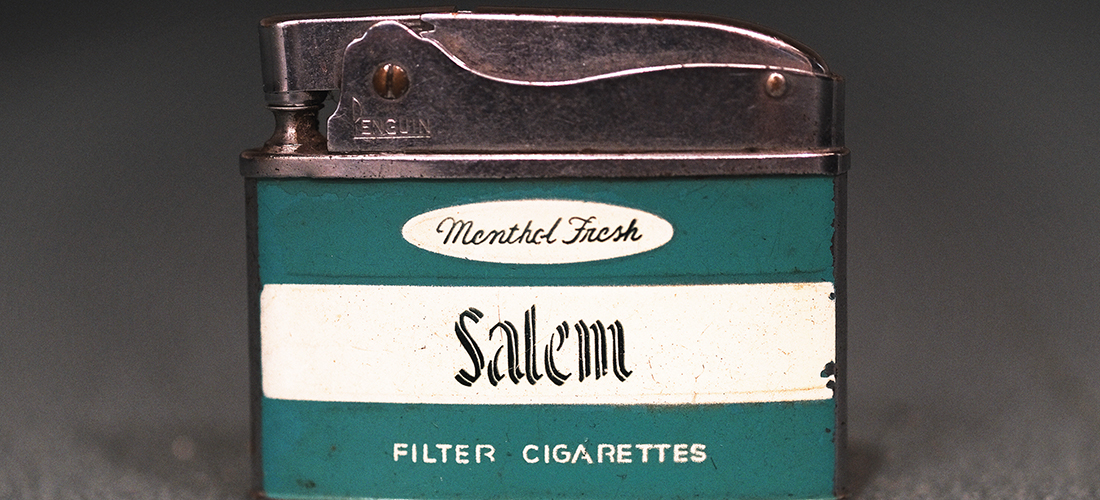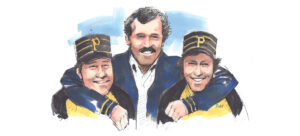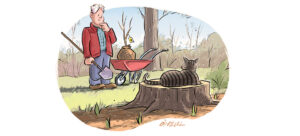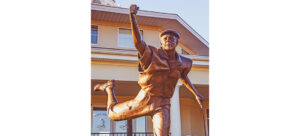
Unhooked
Avoiding a real drag at dawn
By Bill Fields
Walking through the Atlanta airport to my departure gate for an early morning flight late this summer, I trailed a couple of passengers who took a hard right into a glass-doored room with rows of seats. I didn’t understand their detour until I glimpsed someone settled in with a cigarette, the smoke headed upward toward a powerful vent in an attempt to mitigate the odor.
I checked later, and there are more places at Hartsfield-Jackson International for animals to go to the bathroom than for their owners to have a cigarette.
Smoking is an increasingly lonely and expensive — at my local convenience store, a pack ranges from $7.99 to $11.10 — proposition in the United States. Less than 15 percent of the population is lighting up compared with about four out of 10 Americans half a century ago, not long after the surgeon general first warned of the health risks. Chick-peas grow and solar panels collect the sun’s energy in many places where tobacco once grew.
I’ve smoked cigarettes — probably not a carton in total, right after I graduated from college — but thankfully never got hooked and, growing up in North Carolina when I did, that probably put me in the minority. Going to tour the R.J. Reynolds plant in Winston-Salem was as natural an outing as a trip to a museum in Raleigh or the battleship in Wilmington. We were very proud the Christmas we gave Dad, a Salem man, a kit to roll his own cigarettes. He was less enthusiastic, and Dad never missed a week of purchasing his carton of Salems from the Big Star (for about half the cost of what a single pack runs today).
It is hard for me to picture Dad without a cigarette. He smoked at least two packs a day most of his adult life. He didn’t want a shirt unless it had a pocket to store his smokes — even his T-shirts were so designed. He smoked inside, outside and when he was driving, fishing or playing golf. He had lighters inscribed with his initials.
I don’t know if he agreed with the Salem advertising that the brand had “a taste as soft and fresh as springtime,” but he was thoroughly hooked until he was diagnosed with a smoking-related cancer and had surgery. Dad only lived a little more than a year after that operation. He never smoked again, though, and after he quit came to realize how offensive the habit was.
Given that even doctors endorsed smoking when Dad started as a teenager in the late 1930s, and that cigarettes were part of a soldier’s standard kit during World War II, it’s not hard to see how so many people in his generation got hooked.
As I tried to discourage a young friend of mine from smoking recently, I thought about my father’s life and death, and of those smokers in the airport, who ought to know better, taking a drag at dawn and counting the minutes until they could have another cigarette.
I’m lucky that I quit before I ever really started, unhappy with how smoking made me feel and my clothes smell, beyond what had become indisputable health hazards. The stale scent was so different from what I remembered from a decade earlier when Dad took me to a tobacco warehouse in Fairmont, where the sweetly powerful and appealing aroma of the cured product was more distinct than the auctioneer’s rapid delivery.
I bought my last pack of Salems almost 40 years ago. It was a short smoking experiment, not quite as abbreviated as when I tried chewing tobacco for one inning during a college intramural softball game. As I attempted to manage the chaw, I felt as if I were getting greener than the sparse, end-of-semester grass on which we were playing. I was in left field and out of my league. My first purchase of Red Man was my last. PS
Southern Pines native Bill Fields, who writes about golf and other things, moved north in 1986 but hasn’t lost his accent.





